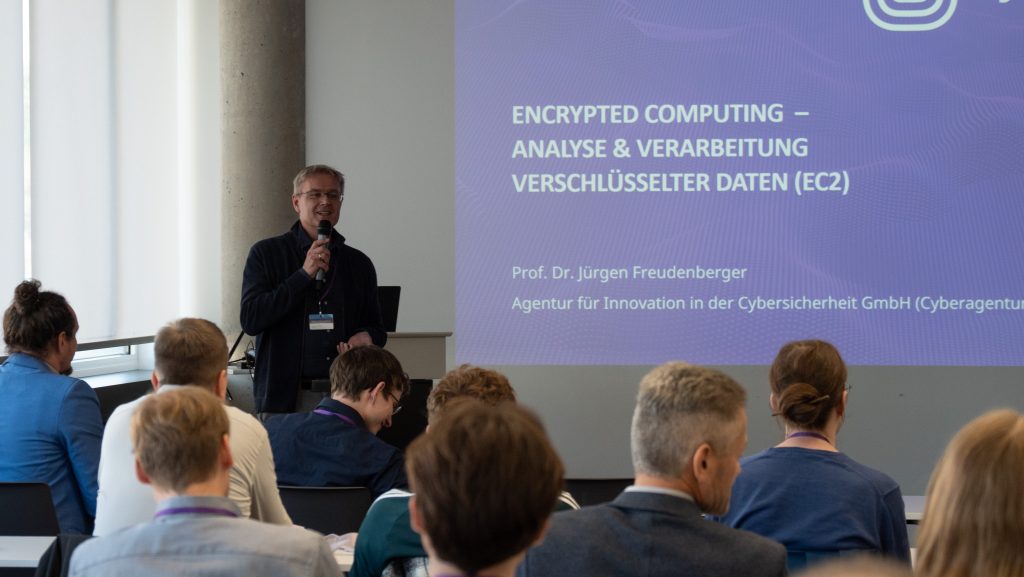Cyberagentur presents “Encrypted Computing” research program in Halle

On September 30, 2025, the Agentur für Innovation in der Cybersicherheit presented the “Encrypted Computing” (EC2) research program at a specialist event in Halle (Saale). Around 40 participants from project partners, academia, consumers and students from Martin Luther University Halle-Wittenberg took the opportunity to gain insights into current research approaches and fields of application.
The EC2 program aims to keep data encrypted even while it is being processed. Methods such as Fully Homomorphic Encryption (FHE) and Secure Multi-Party Computation (MPC) are intended to make it possible to evaluate information without revealing its confidentiality. In addition, concepts such as Private Set Intersection (PSI) and Private Information Retrieval (PIR) were presented, which were developed for the confidential comparison and retrieval of data.
Prof. Dr. Jürgen Freudenberger, Head of the Cyberagentur’s Key Technology Department, opened the event with an overview of the program’s strategic aims. Keynote speaker Prof. Dr. Zoltán Mann, Professor of Cybersecurity, then emphasized that encrypted data processing is a key technology for securing trust in an increasingly digitalized world threatened by quantum computers.
The participating project teams took the opportunity to present their research work. Prof. Dr. Antonia Wachter-Zeh, holder of the Chair of Codes and Cryptography at the Technical University of Munich, and Dr.-Ing. Hannes Bartz, Head of the Quantum-Resistant Cryptography Group at the German Aerospace Center, provided insights into the PQPrime project. Here, homomorphic encryption methods are being optimized for practical use and new cryptographic methods are being developed.
The MPCC project was presented by Dr. Sebastian Gajek, founder and CEO of enclaive GmbH, and Prof. Dr. Peter Scholl, Professor of Cryptography at Aarhus University. They explained how secure multi-party computation based on trusted execution environments and secret sharing methods creates frameworks that enable analyses on sensitive data without disclosing it.
The second day focused entirely on the presentations of the users, who introduced themselves and their use cases. Among them were the Federal Office for Information Security (BSI) and the Bundeswehr Center for Cyber Security (ZCSBw).
The two-day event made it clear that the EC2 research program goes beyond pure basic research. Perspectives were presented on how encrypted data processing can be used in areas such as healthcare, administration and defense and what contribution it makes to the digital sovereignty of Germany and Europe.
